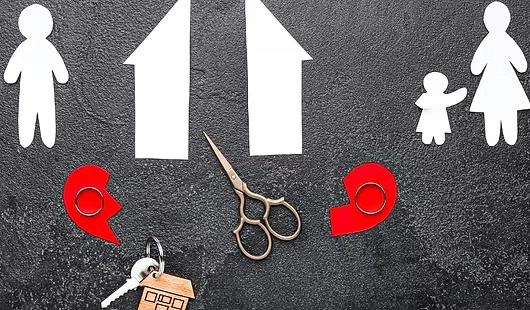Divorce is a difficult and emotional process, but sometimes it is the best solution for a troubled marriage.
In Cameroon, the divorce process follows legal procedures that depend on the type of marriage.
Whether you are considering filing for divorce or simply want to understand the process, this guide will explain everything in clear and simple terms.
Understanding Divorce in Cameroon
Marriage in Cameroon can be classified into civil, religious, or customary marriages.
However, only civil marriages are officially recognized by the courts.
This means that even if a couple had a religious or traditional wedding, the court will only grant a divorce if the marriage was legally registered as a civil marriage.
For those who got married under customary or religious law, the first step before seeking a divorce is to ensure the marriage was registered with the civil status office.
If the marriage was not registered, the process of dissolving the union will depend on traditional or religious customs rather than legal proceedings.
It is important to know that Cameroon follows the monogamous and polygamous marriage systems.
If you were married under a monogamous civil marriage, having another spouse can be grounds for divorce.
However, if the marriage was under customary polygamous law, divorce procedures may be different for each wife.
Legal Grounds for Divorce
A divorce cannot be granted without a valid reason.
The court requires strong evidence that the marriage has broken down beyond repair.
Below are some of the most common legal grounds for divorce in Cameroon:
1. Adultery
Infidelity is one of the main reasons for divorce.
If one spouse cheats, the other can file for divorce, but they must provide evidence such as text messages, photos, witness testimony, or private investigator reports.
2. Abandonment
If one spouse leaves the marriage and refuses to return without any justifiable reason, the other can seek a divorce.
This could include cases where a partner moves to another city or country and cuts off communication.
3. Domestic Violence
Physical, emotional, and psychological abuse are strong grounds for divorce.
If a spouse is abusive, the victim can file for divorce and seek protection from the court.
Evidence such as medical reports, police statements, and witness testimonies can help strengthen the case.
4. Failure to Fulfill Marital Responsibilities
Marriage comes with responsibilities, including providing emotional, financial, and physical support.
If one spouse refuses to take care of the other or neglects the children, the court may grant a divorce.
5. Mutual Agreement
Some couples decide to end their marriage by mutual consent.
This is often the simplest form of divorce, as both partners agree to separate without blame.
Even in such cases, a court still needs to approve the divorce to make it official.
It is important to have evidence to support the claims, as the court will require proof before granting a divorce.

Steps to Get a Divorce in Cameroon
1. Hire a Lawyer
Divorce cases require legal representation.
A lawyer will guide you through the process, prepare documents, and represent you in court.
Choosing an experienced lawyer can help speed up the process and ensure that your rights are protected.
2. File a Divorce Petition
The spouse seeking a divorce (the petitioner) must file a divorce petition at the High Court.
This document includes:
The names and details of both spouses.
The reason(s) for seeking a divorce.
Any requests for child custody, financial support, or property division.
This document is prepared by the lawyer and submitted to the court for official processing.
3. Notification and Response
Once the petition is filed, the court will notify the other spouse, giving them the opportunity to respond.
They may either:
Agree to the divorce (uncontested divorce), making the process faster.
Dispute the claims (contested divorce), leading to a longer legal battle.
If the spouse does not respond, the court may proceed with the case in their absence.
4. Court Hearings
During the court hearings, both spouses will have a chance to present their side of the story.
The judge will:
Examine the evidence provided by both parties.
Listen to witness testimonies if necessary.
Decide on important matters such as child custody, financial support, and asset division.
The number of hearings depends on the complexity of the case.
If both parties agree, the process is shorter.
If there are disagreements, multiple court sessions may be required.
5. Court Decision and Divorce Ruling
If the judge finds sufficient grounds for divorce, the marriage will be legally dissolved.
The judge will also make decisions regarding:
Who gets custody of the children.
How property and assets will be shared.
Whether one spouse must pay financial support to the other.
The court’s decision is final unless an appeal is made.
What Happens After Divorce?
1. Child Custody
The court decides who will take care of the children based on:
The financial stability of each parent.
The emotional and psychological well-being of the children.
The child’s own preference (if they are old enough).
In many cases, the mother is granted custody, but this is not automatic.
If the mother is deemed unfit, the father may be given custody.
2. Division of Property
If the couple had a prenuptial agreement, the court will follow its terms.
If not, assets acquired during the marriage are shared fairly but not always equally.
The judge considers:
Who contributed more financially.
Ownership of property before marriage.
Who needs the assets more (e.g., a house for the parent with child custody).
3. Financial Support (Alimony and Child Support)
Alimony is money paid by one spouse to the other after divorce to help them maintain a stable life. It is usually temporary unless the recipient has no means of earning income.
Child support is paid by the non-custodial parent to help cover the children’s expenses, including education and healthcare.
How Long Does the Divorce Process Take?
The time required to finalize a divorce depends on:
Whether both spouses agree – If uncontested, it can take a few months.
Disputes over custody or property – If contested, it may take over a year.
Court backlog – Some cases take longer due to delays in the legal system.
On average, divorce cases in Cameroon take six months to two years to be finalized.
Cost of Divorce in Cameroon
The cost of a divorce depends on:
Lawyer’s fees – Depending on the complexity of the case.
Court fees – Payments for filing legal documents.
Additional expenses – If witnesses or expert reports are needed.
A simple divorce may cost between 100,000 FCFA to 500,000 FCFA, while complex cases can exceed 1,000,000 FCFA.
Can You Remarry After Divorce?
Yes, once the divorce is finalized, both individuals are legally free to remarry.
However, some religious or traditional customs may require a waiting period before remarriage.




